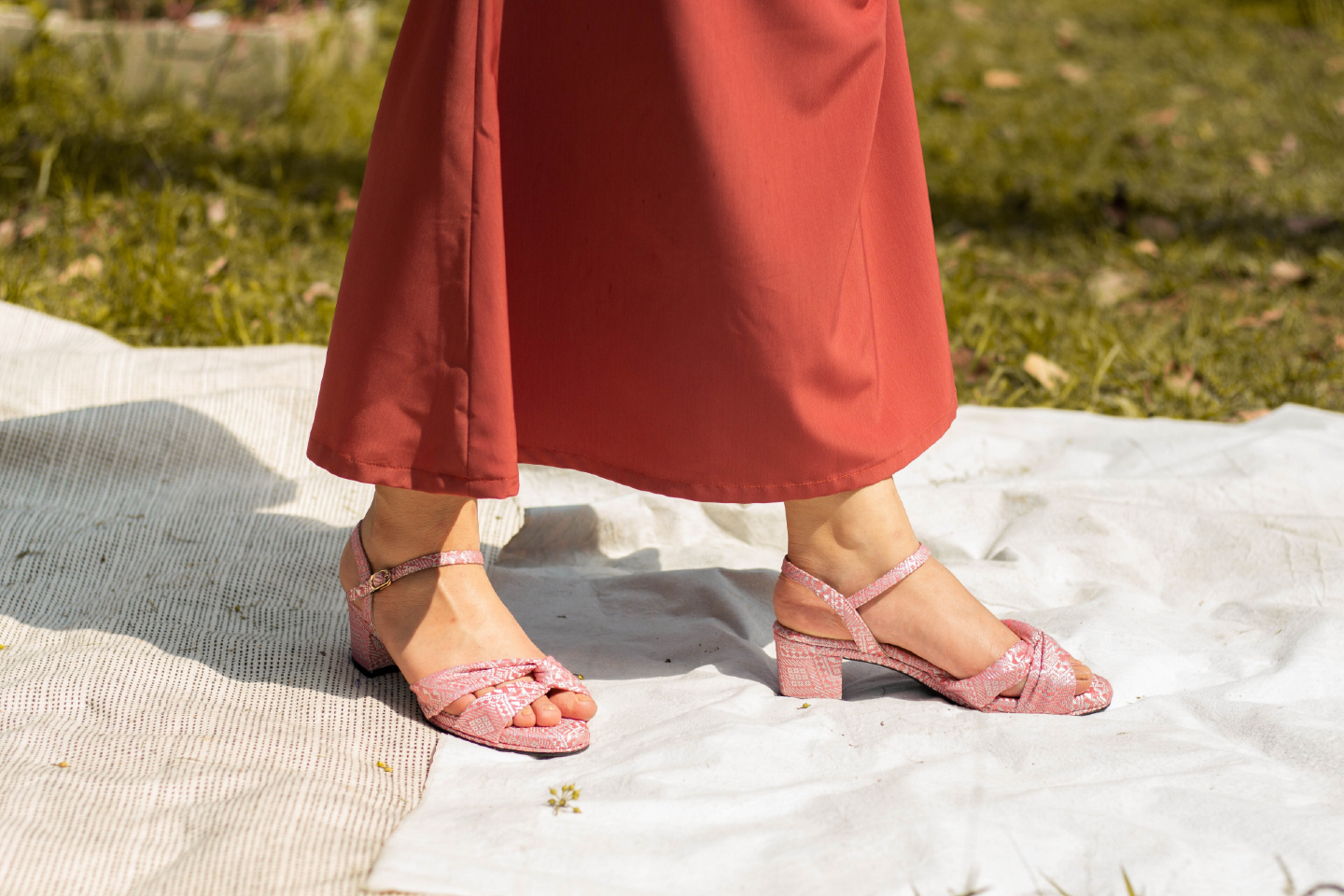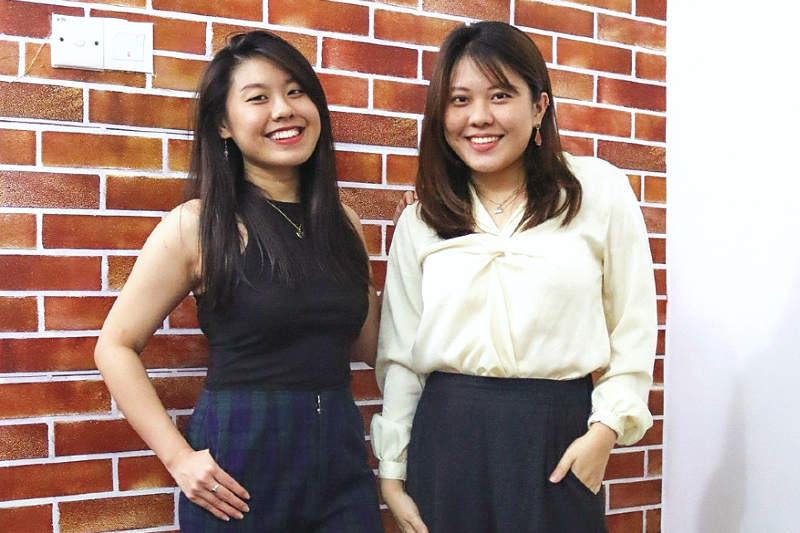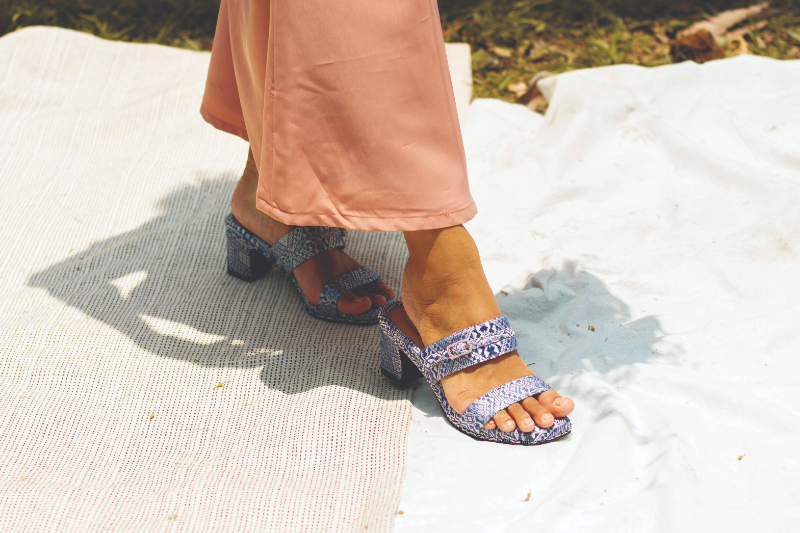
Machino's footwear are made to order (All photos: Machino)
Sisters Esther Tai Shen Hui and Amy Tai Shuh Yuk grew up with an obsession with shoes, specifically heels. Their similarities do not end there. Both have a degree in marketing — Esther graduated last year from Monash University Malaysia and Amy, early this year from Help University. Considering the entrepreneurial spirit that is prevalent in their family — their mother had a fashion retail business and an uncle owns a shoe factory — it only made sense that the ladies would kick-start their own venture.
What is surprising is that the Tai sisters would do so during a global pandemic. “I have always wanted to start my own business, and we were also influenced by our parents because they really wanted us to have a family business together. We thought it would be a good idea to work together and see what amazing things we could achieve,” explains Amy.
Working with their uncle, whose shoe factory is over 20 years old, the sisters began building their brand and carrying out R&D for the perfect pair of footwear. This was in March last year, during Malaysia’s first lockdown. “We wanted to create comfortable shoes for women who spent long hours standing and walking,” adds Amy.
image-05-07-21-04-24.jpg

Inspired by the diversity of their mother’s products, which include all manner of traditional outfits such as baju kebaya, cheongsam and sarees, Amy and Esther aimed to form something that really celebrates being Malaysian. As such, they named their business Machino. “MA is for Malay, CH is for Chinese, IN is for Indian, and O is for others,” says Esther. Machino’s shoe designs are also uniquely Malaysian as they feature traditional fabrics such as songket and Chinese brocade.
Machino’s first collection came out last November — a soft launch with everyday shoes so they could test the market. The sisters offered four designs in a range of colours, each available as heels or flats. “We wanted to make timeless pieces that could be used for any occasion. You can wear them for an outing or even to run errands. The response was very good, and even now people buy shoes from our first collection,” explains Esther.
A few weeks later, Machino released the same designs with a local twist. “This collection actually manifested the vision we had for Machino, which was to have Malaysian elements such as the songket and cheongsam fabrics, and lots of colour,” says Amy. The campaign for this collection was set in cultural landmarks such as Batu Caves and the Sultan Abdul Samad Building to really celebrate Malaysian heritage.
img_1138_1.jpg

Since then, Machino has released several collections, each during periods with cultural significance. “We have had a collection for Chinese New Year as well as Hari Raya, and a range for Merdeka as well as Deepavali. We also had a Valentine’s collection this year. It was called ‘Be your own Valentine’ as everyone was at home because of the lockdown. We wanted to bring awareness of self-love,” explains Amy.
Unlike most shoe businesses, Machino’s heels and flats are made to order. “Every shoe has its own lifespan, and we want our customers to actually get the shoes as soon as they are ready and be able to wear them and have them last longer,” says Esther. Being made to order is also a sustainable practice for the business as there is no wastage and they will not have dead stock taking up space.
Other than having production interrupted by lockdowns, another challenge Machino faces is being an online business. “Most Malaysians feel it is always better to try shoes on before they buy them because of all the different sizes. Because we are online, it’s harder to get them to buy and we cannot afford to have our own store that people can go to,” says Esther. “So, what we do is teach our customers to measure their foot length and have a flexible return system so that customers can exchange the size or style easily.”
Machino is also in the midst of talks to place its shoes at Parkson outlets as well as at a consignment store in Bukit Bintang City Centre, Kuala Lumpur, once lockdown restrictions are relaxed.
What makes their shoes so popular, other than their locally inspired designs, is the fact that the sisters put comfort first. “Our shoes have a very thick insole sponge, so customers often say that while they don’t usually wear heels, ours are so comfortable that they even wear them out to run errands. I think that’s one of our biggest achievements — creating a very comfortable pair of heels, especially ones that make our customers come back and buy again and again,” explains Esther.
Because of the lockdowns, they have been unable to organise photoshoots and campaigns. This has forced the partners to delay the launch of some of their new collections to later in the year. By then, they hope to launch their wedding collection, which is not strictly for couples. “It’s about new beginnings, so we want to include singles as well, those who are starting something new like graduating or starting work. One of the main colours featured will be white — like a blank slate or a new start,” says Esther.
The sisters have been able to work seamlessly together to develop their brand and business. Esther handles operations and production, Amy works on marketing and PR, and they both collaborate on the creative elements such as content creation and shoe design. In the future, they hope to open their own bricks-and-mortar store in the heart of Kuala Lumpur so tourists will also have a chance to experience local culture in a different way. “We want to be more than just Buatan Malaysia,” adds Amy. “We want to use our shoes to introduce our culture and heritage to the world.”
This article first appeared on Sept 6, 2021 in The Edge Malaysia.


